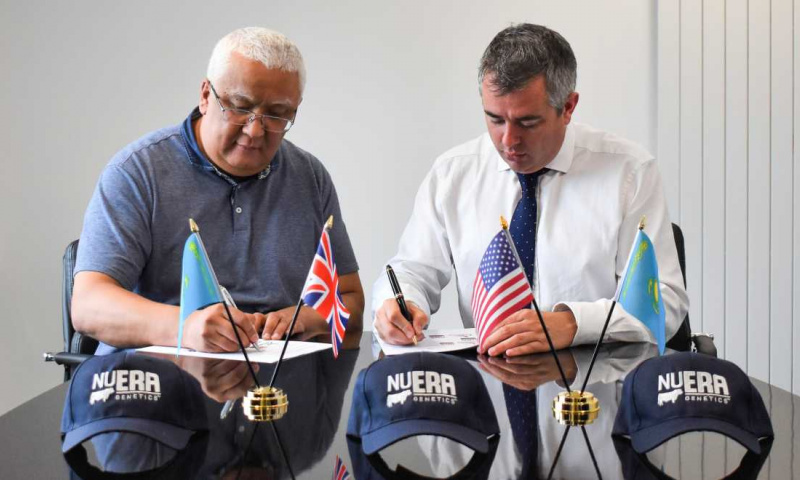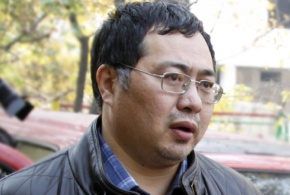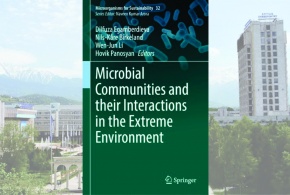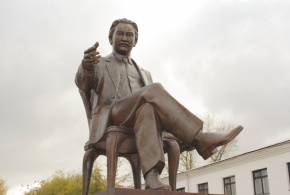
With the support of the Embassy of Kazakhstan in the UK, AkTep LLP of Kazakhstan and Genus Breeding Ltd of the UK signed an agreement for the creation of an Aberdeen Angus and Hereford genetic core in Kazakhstan. The agreement is to last for five years with an optional extension for another five years, reports the press service of MFA.
Under the agreement, the British company will begin the process of increasing meat productivity of the aforementioned breeds through improving the genetic quality of livestock at AkTep’s feedlots, along with over 500 farms in the Aktobe region who are cooperating with the company. The gene helps improve feed conversion. Today, one kilogramme of meat is produced from eight kilos of feed in Kazakhstan. The proposed approach will help produce one kilo of meat using only three kilos of feed.
Genus Breeding Ltd will send a specialist to Aktobe to implement the first phase of the project in 2020. According to preliminary calculations, in the first years of the project, the annual increase in profits from each newborn calf will amount to 50,000-100,000 tenge (£100-200). This indicator is to be achieved by increasing the exponential mass, the cattle’s rapid growth and saving feed.
The project’s conditions outline that Genus Breeding Ltd will only be paid if it ensures an increase in AkTep’s annual profits over the course of five years. The portion of the fee payable will only constitute 30 percent of annual profit growth of the Kazakh company.
Another important feature of the project is its positive environmental impact, which lies in the reduction in the actual volume of feed used, the reduction in the growth of cattle population, as well as the decrease in carbon dioxide emissions to the atmosphere.
Under the agreement, Genus Breeding Ltd also provided AkTep with the right to use its recognisable logo in advertisement products and handouts. This will increase the Kazakh company’s international competitiveness and provide the opportunity to attract foreign investors to expand production.
The Kazakh Scientific Research Institute of Animal Husbandry and Forage Production also showed interest in the project. It will send two of its employees to carry out empirical analysis and study the entire production cycle from artificial insemination to raising cattle. If the advantages and the economic viability of the project is proved, the Kazakh side will consider its large-scale expansion to other regions of Kazakhstan.



















 Сот белсенді Ермек Нарымбайдың мерзімінен ерте босап шығу туралы өтінішін орындамады
Сот белсенді Ермек Нарымбайдың мерзімінен ерте босап шығу туралы өтінішін орындамады
 Poverty and misery of …. “terrorists”
Poverty and misery of …. “terrorists”
 SCIENTISTS OF THE KAZNU ARE INVESTIGATING THE PROBLEM OF SURVIVAL OF MICROORGANISMS IN EXTREME CONDITIONS
SCIENTISTS OF THE KAZNU ARE INVESTIGATING THE PROBLEM OF SURVIVAL OF MICROORGANISMS IN EXTREME CONDITIONS
 "Atomic" exam for officials of Kazakhstan
"Atomic" exam for officials of Kazakhstan
 Faculty of Journalism of the Al-Farabi Kazakh National University held an annual scientific and practical conference «Bekhozhinov readings»
Faculty of Journalism of the Al-Farabi Kazakh National University held an annual scientific and practical conference «Bekhozhinov readings»
 Kazakhstan signed an agreement with Russia on the allocation of vaccine against coronavirus
Kazakhstan signed an agreement with Russia on the allocation of vaccine against coronavirus